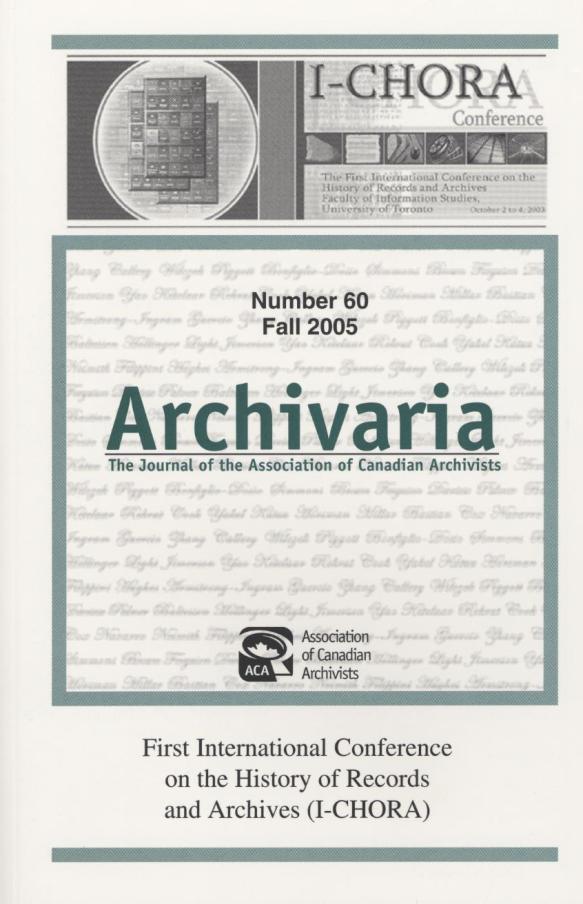An Archival Revolution: W. Kaye Lamb and the Transformation of the Archival Profession
Abstract
W. Kaye Lamb, fourth Dominion Archivist of Canada, 1948–69, as well as its first National Librarian and a prolific historian, ignited an archival revolution in the country. Rejecting many of the ideas of Hilary Jenkinson and most of the approaches of his predecessors, Lamb knew he was establishing in Canada a “new profession” for archivists and a new kind of archives. His revolution to modernize archivy had three major thrusts: enhancing total archives by augmenting more systematic and comprehensive appraisal (and destruction) of records, embracing archival government records and establishing records management, and significantly expanding researcher services and public programming. All were driven by his desire for “keeping the past up to date” to meet the pressing cultural needs of the country, and to support the postwar creation of an efficient modern state. The archives that Lamb inspired – and his ideas underpinning them – form the backdrop for much of the intense debate of the past three decades about the nature of the archival profession and its functions. Understanding Lamb’s ideas thus sheds light on the profession’s present and future directions, as well as celebrate one of its historical giants. This study is based on Lamb’s own writings and personal papers, including first-time access to an extensive unpublished memoir of his archival career.
RÉSUMÉ
W. Kaye Lamb, qui fut le quatrième Archiviste fédéral du Canada de 1948 à 1969 ainsi que le premier Bibliothécaire national et un historien prolifique, a déchaîné une révolution archivistique au pays. Rejetant plusieurs des idées d’Hilary Jenkinson et la plupart des approches de ses prédécesseurs, Lamb était conscient d’établir au Canada une nouvelle profession pour les archivistes et une nouvelle vision des archives. Cette modernisation a eu trois principales directions : mettre l’accent sur les archives totales en renforçant l’évaluation (et la destruction) systématique et exhaustive des documents, s’attaquer aux documents d’archives du gouvernement et y établir la gestion des documents et, enfin, étendre de façon significative les services aux chercheurs et le programme public. Tous ces projets étaient soutenus par le désir de Lamb de « garder le passé au goût du jour » afin de satisfaire les besoins culturels pressants du pays et de soutenir la création après la guerre d’un état moderne efficace. La vision des archives inspirée par Lamb – et les idées qui sont sous-jacentes – forment la toile de fond de l’intense débat dans les trois dernières décennies sur la nature de la profession d’archiviste et ses fonctions. Mieux comprendre les idées de Lamb permet donc de jeter la lumière sur le présent de notre profession et ses directions futures ainsi que de célébrer un des ses géants historiques. Cet article est fondé sur les écrits et les documents personnels de W. Kaye Lamb, entre autres sur un mémoire non-publié sur sa carrière historique auquel l’auteur a pu acéder pour la première fois.
Authors of manuscripts accepted for publication retain copyright in their work. They are required to sign the Agreement on Authors' Rights and Responsibilities that permits Archivaria to publish and disseminate the work in print and electronically. In the same agreement, authors are required to confirm that "the material submitted for publication in Archivaria, both in its paper and electronic versions, including reproductions of other works (e.g. photographs, maps, etc.) does not infringe upon any existing copyright." Authors of manuscripts accepted for publication retain copyright in their work and are able to publish their articles in institutional repositories or elsewhere as long as the piece is posted after its original appearance on archivaria.ca. Any reproduction within one year following the date of this agreement requires the permission of the General Editor.





